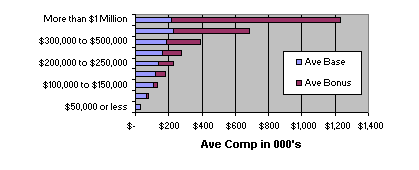Hedge Fund Search Digest’s 2007 Hedge Fund Compensation Report concluded, “For hedge fund firms to attract and keep the best players, some changes need to take place. The study shows notable turnover in the smaller funds. It is well known that small funds don’t have the large management fees to support high compensation increases in years of low fund performance. The firms represented here are performing well overall and yet, they should still be concerned about turnover. It is time to take closer look at compensation packages and other employee retention methods.”
That was before the credit crunch. Since then, the industry has seen many small funds close, others launch in hopes of profiting from distressed markets, and a general trend toward consolidation in which assets have been increasingly directed toward large, well-established funds. Also, while employment at hedge funds has always been competitive (and of course still is), hiring in the industry has been brisk, with stable funds amassing human capital from among many desirable candidates, including whole teams, looking for work. One recruiter specializing in financial technology in the Northeast corridor says, “Everybody wants to go to a good hedge fund now. It’s easy to attract candidates. And hiring is good, there are definitely opportunities.” Tectonic shifts in the industry and the financial world as a whole make the price of talent a murky question this year.
Bonus figures from the 2007 Hedge Fund Compensation Report told a simple story: as compensation increased, bonus counted for a much greater proportion of total comp. There was an unofficial cap on base pay somewhere in the low $200k’s, and the numbers show what was a typical bonus at each comp level.

At the beginning of the year, we asked a seasoned quantitative recruiter what will happen to hedge fund compensation in 2008: “It really depends upon the firm and the person. In times like these, firms traditionally review their entire personnel to determine whom they want to retain… Those people who are deemed a strategic asset that the firm wants to grow will be given comparatively large bonuses and other incentives to keep them… Most others will probably see smaller bonuses this year unless their area is profitable. Because base salaries are a fixed cost, firms are likely to try to keep increases small.” Commenting on bonus structures more recently, the NY-focused tech recruiter said: “Firms that are doing well, same as always. They want to keep their good people.” As usual, knowing what to expect means having a realistic idea of your firm’s performance, your own, and the competition for your job.






Comments on this entry are closed.